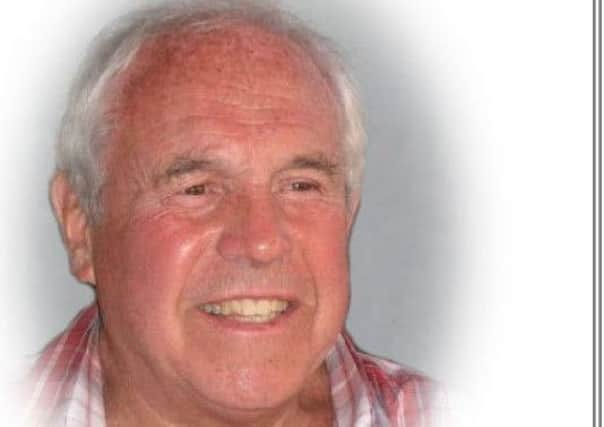Obituary: Jack Miller FRCS Edin, consultant surgeon


• Jack Miller FRCS Edin, consultant surgeon.
Jack Miller was an innovative surgeon and one of the pioneers of bariatric surgery for morbid obesity in Scotland.
Advertisement
Hide AdAdvertisement
Hide AdHe made a huge contribution to the field north of the Border through his work at Dr Gray’s Hospital in Elgin where he was instrumental in expanding services to encompass a wide range of surgical procedures.
The son of a publican, he was born in Woodside, Aberdeen and educated at the city’s Kittybrewster Primary School and Robert Gordon’s College. He began his medical studies at Aberdeen University in 1961, working in his grandfather’s bar to support himself, and graduated MB ChB in 1968. He spent his first couple of years gaining experience as a house surgeon and senior house officer, alternating between posts at Dundee’s Maryfield Hospital and Aberdeen Royal Infirmary.
By 1973 he was a registrar in Aberdeen before spending a year at Dumfries and Galloway Royal Infirmary. Having become a Fellow of the Royal College of Surgeons of Edinburgh, and after returning to the Granite City for a few months, he then headed off to America’s Harvard University, as a research fellow in surgery. He worked in Boston’s Deaconess Hospital where, in 1976, he was in charge of the nutritional support team and supervised the intensive care unit. It was during his time in Boston that he first developed an interest in bariatric surgery, undertaking a research project on induced fasting in patients undergoing major abdominal operations.
The late 1970s saw him back in Aberdeen where, after a spell on stomach, biliary tract and colon surgery, he became a lecturer in surgery at his alma mater.
For the last 25 years of his career he was a senior member of staff at Dr Gray’s Hospital in Elgin, joining in 1984 and going on to make a huge contribution to the hospital and healthcare generally, particularly in surgery.
He believed that a wide range of surgical procedures could be undertaken at Elgin and pioneered gastric band surgery there for morbidly obese patients. During the period from the early 1980s to the mid-1990s almost 200 cases of bariatric surgery were carried out in Scotland, nearly half of them in Elgin. His service in this discipline became the largest in the country. He was regularly asked to provide expert advice and to lecture on the subject and was a member of a multidisciplinary working group of the Scottish Medical and Scientific Advisory Committee which conducted a Review of Bariatric Surgical Services in Scotland, published in 2005.
During his career he was also an examiner for the Universities of Aberdeen and Kuwait’s Medical Schools and for the FRCS and MNRCS at the Royal College of Surgeons of Edinburgh.
In Elgin he was instrumental in raising the profile of Dr Gray’s and in persuading the health department that the hospital, in addition to offering obstetrics, gynaecology and paediatric services, should also have an orthopaedic and trauma surgery unit.
Advertisement
Hide AdAdvertisement
Hide AdWhen Dr Gray’s needed a scanner but staff were told there was no funding available for the vital equipment, they turned to the public for assistance and he became president of the Moray Scanner Appeal, helping to raise £1 million in less than three years to buy a state-of-the-art CT scanner.
Miller, who was also chairman of Moray’s Princess Royal Trust for Carers for many years, was particularly proud of the achievement and the public’s “amazing” response. Over the following years more than 24,000 patients benefited from the scanner.
Hugely admired by his colleagues and patients at the hospital, where he had helped to train scores of young surgeons, he was known for his perennial smile, enthusiasm and happy, reassuring demeanour, always willing to take time for people no matter what their ranking in the hospital hierarchy.
His attitude, skills and dedication had achieved so much for healthcare in the region but when he retired six years ago he insisted it had been mainly due to others: “Whatever successes I have had at Dr Gray’s have largely been because of the people I have worked with, not just my consultant colleagues but nursing staff, porters, cleaners – everyone. The quality of the people has been immense.”
He is survived by his wife Isobel, sons John and David and daughter Leah.
ALISON SHAW